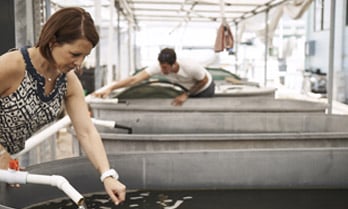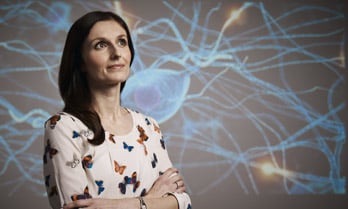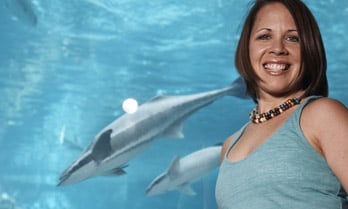







30 November 2021
2021 FELLOW DR KIRSTY NASH, UNIVERSITY OF TASMANIA
Micronutrient deficiencies remain a significant health concern, with nearly 2.5 billion people at risk of micronutrient deficiencies. You may think a micronutrient deficiency is relatively harmless, but, as an example, Vitamin A deficiency is responsible for over 600,000 premature deaths each year globally, and up to 500,000 cases of preventable blindness in children.
With over one billion people consuming fish and seafood as a significant component of their diet, fish have great potential to provide essential micronutrients to vulnerable populations, but currently we don’t fully understand variation in nutrient content among different species of fish, and in different environments. By exploring this emerging area of research Kirsty hopes to provide answers on how fish might maximise social and health outcomes.
To understand the nutrient profiles of fish, Kirsty must unravel how environmental change will affect the availability and transport of nutrients through food webs. Climate change poses a significant threat to our marine ecosystems and it is critical we understand how this will, in turn, affect the nutrients people gain from fish.
“Fish and other aquatic foods have real potential to help address micronutrient deficiencies. I hope that the outcomes of this research will help society realise that potential and support governments grappling with malnutrition against the backdrop of a changing climate.” said Kirsty Nash.
Focusing on coral reefs, Kirsty’s research aims to deliver world-first predictions of how nutrient production from fisheries will change in response to a changing environment, whilst also quantifying micronutrient flows through reef food webs. Kirsty hopes that this research will have the potential to substantially contribute to global food and nutrition security.
Beyond looking at the resilience of marine social-ecological systems and the links between ecosystem change and human well-being, Kirsty is the founder of an online platform -aKIDemic Life, a free resource hub to empower parents in academia to balance work with caring responsibilities. This came about because of her own challenging introduction to motherhood. As with many academics on short-term contracts, Kirsty was offered a job that required relocation to a new city, away from friends and family. Her daughter arrived a year after moving to Hobart. Following the loss of control that parenthood brings and without a strong support network Kirsty suffered from post-natal depression. It was only due to the great help she received from both health professionals and colleagues that she got back on track and was able to return to research. aKIDemic Life is her way of paying forward the help she received at a very difficult time.